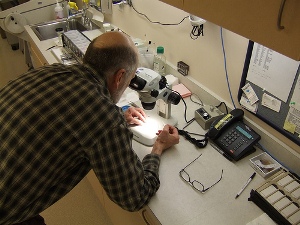The remuneration for forensic pathologists, those critical figures in unraveling the mysteries surrounding unexpected or violent deaths, is a topic of considerable interest. Pinpointing an exact, universal figure for the average salary proves challenging due to a constellation of influencing factors. However, we can explore the salary landscape and dissect the elements that contribute to variations in compensation.
The Salary Spectrum: A Broad Overview
While pinpointing a precise figure remains elusive, salary surveys and professional organizations offer valuable insights. It is essential to understand that the data represents a generalized overview. The salary of a forensic pathologist typically falls within a broad spectrum, reflecting the complexity and demands of the profession.
Key Factors Influencing Earning Potential
Several variables conspire to shape the earning potential of a forensic pathologist. Comprehending these factors is crucial to accurately assess potential income.
Geographic Location: The adage “location, location, location” holds significant weight. Forensic pathologists practicing in metropolitan areas or regions with a higher cost of living generally command higher salaries compared to those in rural or less affluent areas. Demand also plays a role; regions facing a shortage of forensic pathologists may offer more competitive compensation packages to attract qualified candidates. Compensation can vary widely between different states, reflecting the specific needs and resources of local medical examiner offices.
Experience and Expertise: As with most professions, experience is a valuable commodity. A freshly minted forensic pathologist completing their fellowship can expect a starting salary lower than that of a seasoned professional with decades of experience and a proven track record. Furthermore, specialized expertise in areas such as neuropathology, forensic toxicology, or pediatric forensic pathology can further augment earning potential. Certification in specific subspecialties underscores advanced proficiency and may lead to increased remuneration.
Employment Setting: The type of employer significantly impacts salary scales. Forensic pathologists may find employment in a variety of settings, including:
- Government Medical Examiner Offices: These offices are responsible for investigating deaths within a specific jurisdiction. Salaries in these settings can vary depending on the size and budget of the office.
- Private Consulting Practices: Some forensic pathologists establish their own consulting practices, offering services to attorneys, insurance companies, and other entities. Income in this setting is often tied to the pathologist’s reputation, caseload, and ability to attract clients.
- Hospital Systems: Forensic pathologists may also be employed by hospitals, particularly those with Level I trauma centers. Their expertise is invaluable in investigating suspicious deaths that occur within the hospital setting.
- Academic Institutions: Forensic pathologists employed by universities often combine teaching and research responsibilities with casework. Salaries in academic settings may be lower than those in private practice, but they are often supplemented by benefits such as research grants and sabbatical opportunities.
Board Certification and Fellowships: Board certification in forensic pathology, granted by the American Board of Pathology, is a prerequisite for most positions. Completing a fellowship in a specialized area of forensic pathology, such as forensic neuropathology or forensic anthropology, can further enhance a pathologist’s credentials and earning potential. These advanced training programs provide in-depth knowledge and skills in specific areas of forensic investigation.
Call Duty and Overtime: Forensic pathologists are often required to be on call, responding to death scenes or performing urgent autopsies outside of regular business hours. Compensation for call duty and overtime can significantly increase overall earnings, particularly in jurisdictions with high caseloads.
Beyond Salary: Benefits and Perks
When evaluating compensation packages, it’s essential to consider benefits and perks beyond the base salary. These ancillary benefits can significantly impact the overall value of the employment offer.
- Health Insurance: Comprehensive health insurance coverage is a standard benefit, providing access to medical care, dental care, and vision care. The quality and cost of health insurance plans can vary significantly between employers.
- Retirement Plans: Employer-sponsored retirement plans, such as 401(k)s or pensions, are valuable tools for long-term financial security. Some employers offer matching contributions, effectively increasing the value of the retirement plan.
- Life Insurance: Employer-provided life insurance provides financial protection for the pathologist’s family in the event of their death.
- Disability Insurance: Disability insurance protects the pathologist’s income in the event of a disabling illness or injury.
- Continuing Medical Education (CME) Allowances: Maintaining board certification requires ongoing CME. Employers often provide allowances to cover the costs of CME courses, conferences, and other educational activities.
- Malpractice Insurance: Malpractice insurance protects the pathologist from financial liability in the event of a lawsuit alleging professional negligence.
- Paid Time Off: Paid time off includes vacation time, sick leave, and holidays. The amount of paid time off offered can vary depending on the employer and the pathologist’s experience level.
Negotiating a Competitive Compensation Package
Armed with an understanding of the factors influencing forensic pathologist salaries, candidates can effectively negotiate a competitive compensation package. Researching prevailing salary ranges in the specific geographic location and employment setting is crucial. Highlighting relevant experience, specialized expertise, and board certifications strengthens the candidate’s bargaining position. Consulting with experienced colleagues or professional organizations can provide valuable insights into industry standards and negotiation strategies.
The Intrinsic Rewards: Beyond Monetary Compensation
While financial compensation is undoubtedly important, it’s essential to acknowledge the intrinsic rewards associated with the profession of forensic pathology. The opportunity to contribute to the pursuit of justice, provide closure to grieving families, and advance the understanding of disease processes offers a profound sense of purpose. The intellectual stimulation of unraveling complex medical mysteries and the satisfaction of applying scientific knowledge to real-world problems are invaluable aspects of the career.
In conclusion, determining the average salary of a forensic pathologist requires considering numerous factors. Geographic location, experience, employment setting, and specialized expertise all contribute to the salary equation. While the monetary compensation is important, many forensic pathologists are drawn to the profession by the intellectual challenge and the opportunity to make a significant contribution to society. Understanding the salary landscape and negotiating a competitive compensation package allows forensic pathologists to pursue their professional goals while achieving financial security.










Leave a Comment